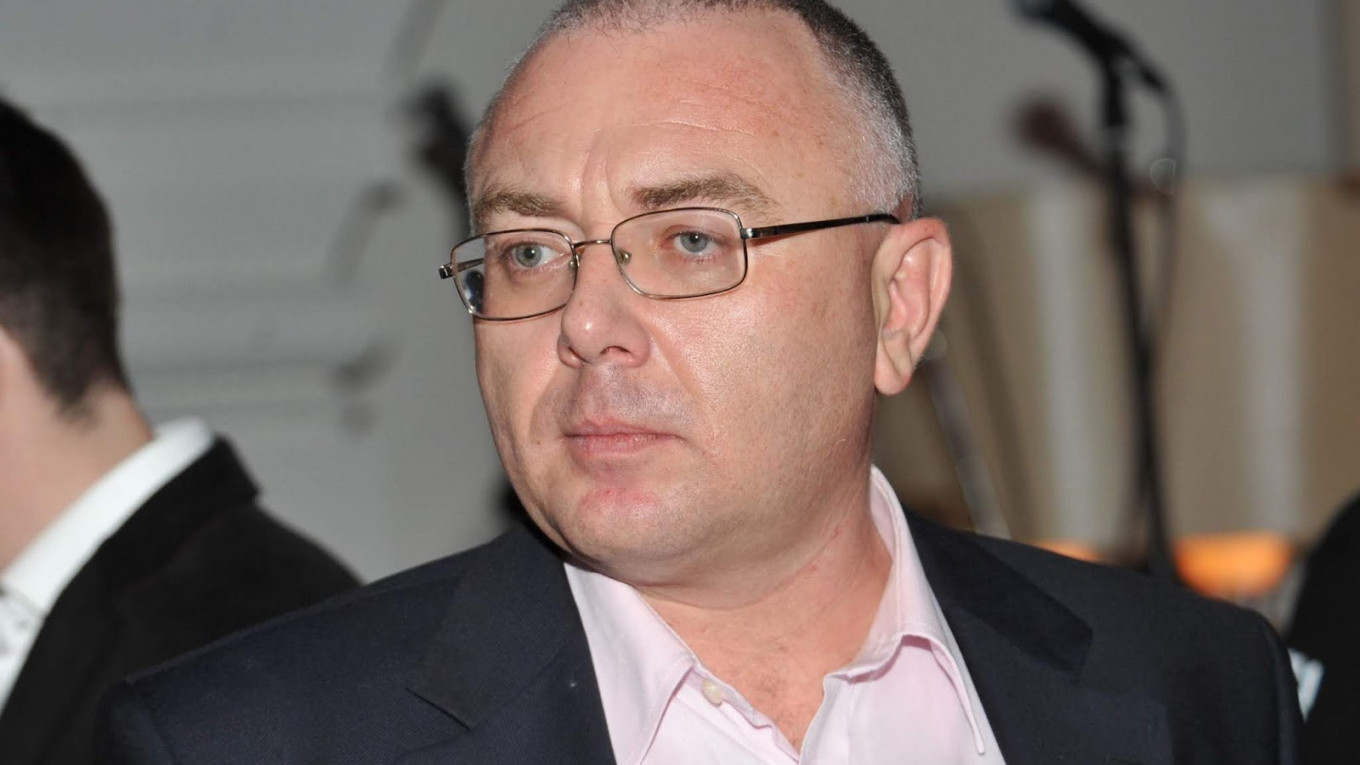This is the first time I’ve told this story publicly. It was 1985: Perestroika — a shift in communist ideology — had already happened, but glasnost — the major political reforms to complement the change — didn’t come until 1986 and 1987.
At that time, family counseling centers had just started to spring up in Leningrad (now St. Petersburg). One wasn’t far from where my relatives used to live, on 25 Rubinstein street. Now it’s been turned into a bar.
Don’t let the word “family” fool you — the center was actually the first legal organization dedicated to “sexology” or what you might call “sexual pathology.” I was 17 then. The predominant social opinion was that homosexuality was a disease that needed to be treated.
So I went to the counseling center. A doctor sat in the corner of a gigantic room that looked like it belonged in a manor house. I told him my problem and he said I should consult Boris Aronov, a doctor at psychoneurological center number three.
Clutching my referral slip, I set off for Park Pobedy metro station. I walked through courtyards filled with blooming lilacs: Everything looked provincial. There was a school with two wings, and past that the psychoneurological facility.
The doctor was Jewish, aged somewhere between 60 and 70. He told me he would treat me with aversion therapy that would reprogram me to feel “disgust toward the male sex.”
How did this aversion therapy work? First, I had to write an essay about my sexual experiences, or, in Soviet medical jargon “acquaintanceship and subsequent intercourse.”
I wrote the essay, first setting the scene. It happened outside. I was walking through the Primorsky district — I lived then in Sestroretsk — when I saw a young man on the beach. We went into something that resembled a half-constructed outhouse or ruined cafeteria or motel, and then, in the words of the famous comedian Alexandrov, “we performed that sweet act, but only sweetly at first, and then — like dogs.”
The essay ended up being quite long, what with the description of the landscape, the way essays were meant to be. Afterwards, Dr. Aronov hypnotized me, but first he rewrote my essay.
It started like this: “You’re walking along the seashore when you see a handsome sailor walking toward you.”
Even though I was supposed to be under hypnosis, Dr. Aronov’s methods, of course, didn’t work. I found the whole thing terribly funny. I mean, you try hypnotizing a 17-year-old boy.
He waved some sort of little hammer in front of my face and I, in order not to torture the poor old guy, and also to prevent him from attempting any drug treatments, pretended the hypnosis was working.
I lay as still as an Egyptian mummy and tried not to howl with laughter.
“A sailor is walking toward you…”
A sailor? I thought. Where did this sailor come from? There are no sailors in Sestroretsk. The sea there is only three meters deep, and that’s only if you walk all the way to Finland. You could only run into a sailor in Kronstadt.
“A sailor is walking toward you. Suddenly, he rips open his tunic and you see his beautiful hairless chest.” Good God, I thought, this isn’t what I wrote! But I forced myself not burst out laughing. I just kept on lying there.
“You walk into a dilapidated bathroom on the seashore and then the police, vigilantes, drag you to the station. The shame! What will your parents say? Your teachers? You want to get into university, right? Now wake up!”
I woke up. “Thanks,” I said. An enormous dildo and some kind of pump were in the corner of the room. I later learned that these were used to treat erectile dysfunction.
Fortunately for me, Dr. Aronov assigned a doctor named Yekaterina Abelevna Golynkina to my case.
She was thin and beautiful.
“Don’t listen to him,” she said. She gave me some books by Jung, Freud and Fraser. “Forget about this,” she said. “You’re fine. Live your own life.” She told me that from now on I would only see her. She’d check me off as having received treatment and then would remove me from the register as quickly as possible.
Yekaterina, that wonderful doctor, now lives in Paris and is a successful psychologist. She has completely forgotten her Soviet roots.
Half a year later, the whole episode, thank God, was finished. Though not entirely. Which is to say, it would have been completely finished if not for two remarkable events.
The first: On one unfortunate day I received a postcard.
If you’ve never received a postcard imagine that somebody’s written on your Facebook wall. But instead of “Happy Birthday,” they’ve written “From Mental Hospital № 3 of the Leningrad City Health Commission” and something along the lines of “Executive Committee of the Council of Working People’s Deputies.”
On the other side the postcard read: “Pavel Albertovich, since you belong to a risk group (302.0—Homosexuality)...”
To understand the full impact of this, it’s important to note that there were only about 40,000 people living in Sestroretsk. We knew all the postmen by name.
The card went on: “...it is thus necessary that you appear at Botkin Hospital for an AIDS test.” My heart sank in horror — my parents could have read this.
“You walk into a dilapidated bathroom on the seashore and then the police, vigilantes, drag you to the station. The shame! What will your parents say? Your teachers? You want to get into university, right? Now wake up!”
The second event: a call from Dr. Aronov. At that time, there was a theory that homosexuality is caused by a lack of testosterone. They took my blood, packed it in a sealed vial, then sent me to a gynecologist. This was the only place in Leningrad where you could get your testosterone and hormone levels tested.
Even today, this is still a complex — albeit routine — analysis, but back then it was basically still in an experimental stage. To this day, I think that if I’d had low testosterone levels I might not be sitting here in front of you. But it turned out that everything was normal.
One morning a few years later — the cherry on top of this story — I heard a voice over the loudspeaker during my final exams. I recognized his voice immediately: “Our guest today is a psychologist, Dr. Boris Isaakovich Aronov.”
My heart sank again. I thought he was going to talk about how he treated homosexuality, and, God forbid, start naming names. I wouldn’t have expected anything less from that idiot.
But it was something else entirely. In 1941, when the Germans laid siege to Leningrad from three sides and the Finns from the fourth, and the Baltic Fleet under Admiral Tributs was defeated (we all know the terrible history of 1941, during which my grandfather was killed), Boris Isaakovich Aronov worked in a special medical unit that rehabilitated submarine sailors.
Finally I understood why sailors kept cropping up in his stories, why he kept turning all of my characters into sailors! I allowed myself to think about what I could not on the divan in Dr. Aronov’s office and burst out laughing.
Why am I telling you all this? When I tell the story of Dr. Aronov in private circles, people often say to me: “You must be traumatized.”
But I don’t have any lasting trauma because of my meetings with Dr. Aronov. Because in the Soviet Union, we all learned how to be resistant. Now, by and large, resistance is no longer taught. Maybe it should be.
At the request of the editors, Pavel Lobkov spoke to one of Dr. Aronov’s old students, Lev Moiseevich Shcheglov, MD, professor and president of the National Institute of Sexology.
“I remember that one day Aronov — I was a young doctor at the time — went on and on about his thoughts on homosexuality and then offered to drive me home in his new Zhiguli. As soon as we started to drive away from the clinic, he grabbed my knee with his right hand, staring tensely ahead. I was dumbfounded. When he did it for the third time, I asked him directly what was going on. It turned out that the “inexperienced” driver kept missing the gearshift.”
A Russian version of this article was first published by the NGO Spid.Center
A Message from The Moscow Times:
Dear readers,
We are facing unprecedented challenges. Russia's Prosecutor General's Office has designated The Moscow Times as an "undesirable" organization, criminalizing our work and putting our staff at risk of prosecution. This follows our earlier unjust labeling as a "foreign agent."
These actions are direct attempts to silence independent journalism in Russia. The authorities claim our work "discredits the decisions of the Russian leadership." We see things differently: we strive to provide accurate, unbiased reporting on Russia.
We, the journalists of The Moscow Times, refuse to be silenced. But to continue our work, we need your help.
Your support, no matter how small, makes a world of difference. If you can, please support us monthly starting from just $2. It's quick to set up, and every contribution makes a significant impact.
By supporting The Moscow Times, you're defending open, independent journalism in the face of repression. Thank you for standing with us.
Remind me later.








